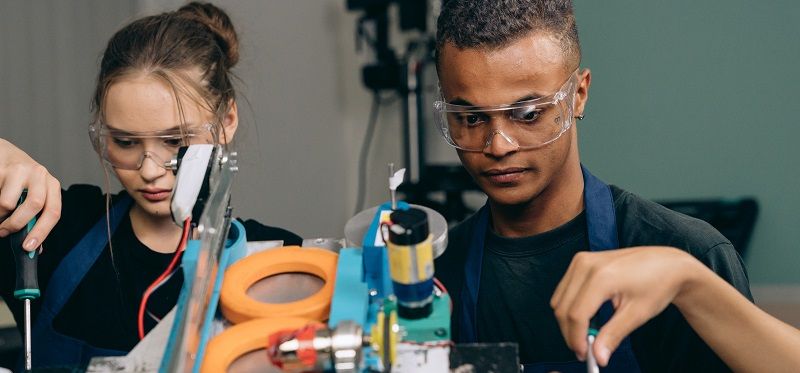
Tuesday, May 28, 2024
Project-based learning (PBL) is at the forefront of an educational revolution in teaching STEM (science, technology, engineering, and mathematics). The dynamic approach engages students and prepares them for real-world challenges. Continue reading to explore the impact of PBL on STEM education, underscoring its benefits, implementation strategies, and real-world success stories.
What Is Project-Based Learning?
Project-based learning is a teaching method that starkly contrasts traditional rote learning. Instead of passively receiving information, students actively engage in an extended investigation and response to a complex question, problem, or challenge. The hands-on, student-centered approach fosters a deeper understanding and prepares students for the complexities of the real world.
The Impact of PBL on STEM Education
Enhances Engagement and Retention
Research on project-based learning (PBL) versus traditional teaching methods reveals numerous advantages. For instance, effective PBL bolsters long-term material retention and frequently leads to outcomes on major exams that are comparable to or better than those of students taught traditionally.
Additionally, PBL enhances problem-solving and teamwork skills and cultivates a more positive attitude toward learning. PBL leverages students' inherent curiosity, which boosts their motivation and deepens their understanding of the material.
In addition, all students, particularly those previously from schools experiencing lack of funding and external support, can experience the rich learning opportunities that students in elite environments have. Improving PBL-related practices among teachers could end the rule of rote learning and test prep schooling, which permeates many impoverished schools.
Delivers Concrete Understanding
Abstract concepts can often be challenging, particularly for younger learners. Hands-on activities help simplify complex scientific principles by transforming them into physical experiences. According to an article by the National Science Teaching Association, students who engage in hands-on learning develop a deeper, concrete understanding of scientific concepts.
Develops Critical Skills
PBL helps students develop essential 21st-century skills such as problem-solving, critical thinking, collaboration, and communication. The Buck Institute for Education highlights that these skills are crucial for success in today’s workforce, particularly in STEM fields.
Provides Real-World Application
One of the most significant advantages of project-based learning is its ability to bridge the gap between theoretical knowledge and real-world application. This connection makes learning more exciting and shows students the practical utility of their academic studies.